6 Foods That Can Lower Your Dementia Risk, Science Says

When we look ahead to old age, many of us fear dementia for its ability to strip away quality of life. According to the Centers for Disease Control and Prevention (CDC), it’s also the seventh leading cause of death in America. However, that doesn’t mean that cognitive decline is a foregone conclusion—nor a normal part of aging.
Just ten percent of adults over the age of 65 are living with dementia, and many of those cases may be preventable with the help of certain lifestyle interventions. These include following a healthy diet, exercising, quitting smoking, limiting alcohol, staying mentally active, and caring for your cardiovascular health.
While no one food can singlehandedly ward off dementia, experts say that following the MIND diet—a combination of the Mediterranean diet and DASH diet—can confer significant protection. In fact, according to a 2017 study published in the Journal of the American Geriatrics Society, individuals who followed the MIND diet closely were at a 30 to 35 percent reduced risk of dementia, compared with those who did not.
Wondering which foods are the most potent protectors of your cognitive health? Read on to learn about six foods that can help lower your dementia risk, according to recent research.
RELATED: 5 Best Anti-Aging Supplements, According to a Doctor.
1
Fresh fruits and raw veggies
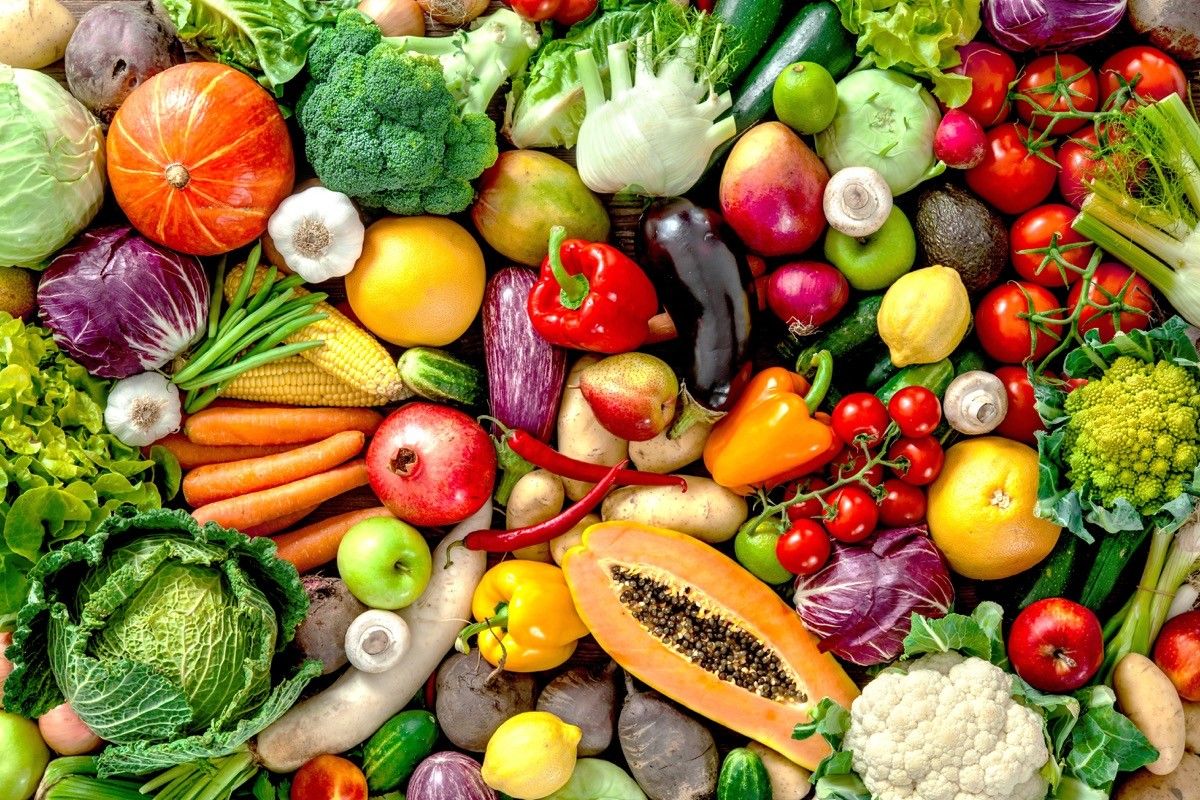
A newly released study published in the journal NeuroImage suggests that eating fresh fruits and raw vegetables can help protect against both dementia and depression. The researchers reviewed cross-sectional imaging data from nearly 10,000 study participants of the UK Biobank and determined that consuming these foods was associated with protective differences in brain structure.
The scientists looked at brain volume using magnetic resonance imaging (MRI) and noted that fresh fruit intake was positively associated with total white matter volume, while raw veggie intake was positively associated with gray matter volume.
“Fruit and vegetable consumption seems to specifically modulate brain volumes. In particular, fresh fruit intake may have a protective role in specific cortical areas such as the hippocampus, areas robustly involved in the pathophysiology of dementia and depression,” the study authors concluded.
While generally increasing your fruit and vegetable intake is likely to have a positive effect on your cognitive and physical health, experts say that a few food items, in particular, are best for brain health. Colorful berries and leafy green vegetables pack the biggest punch when it comes to staving off dementia.
2
Beans and legumes
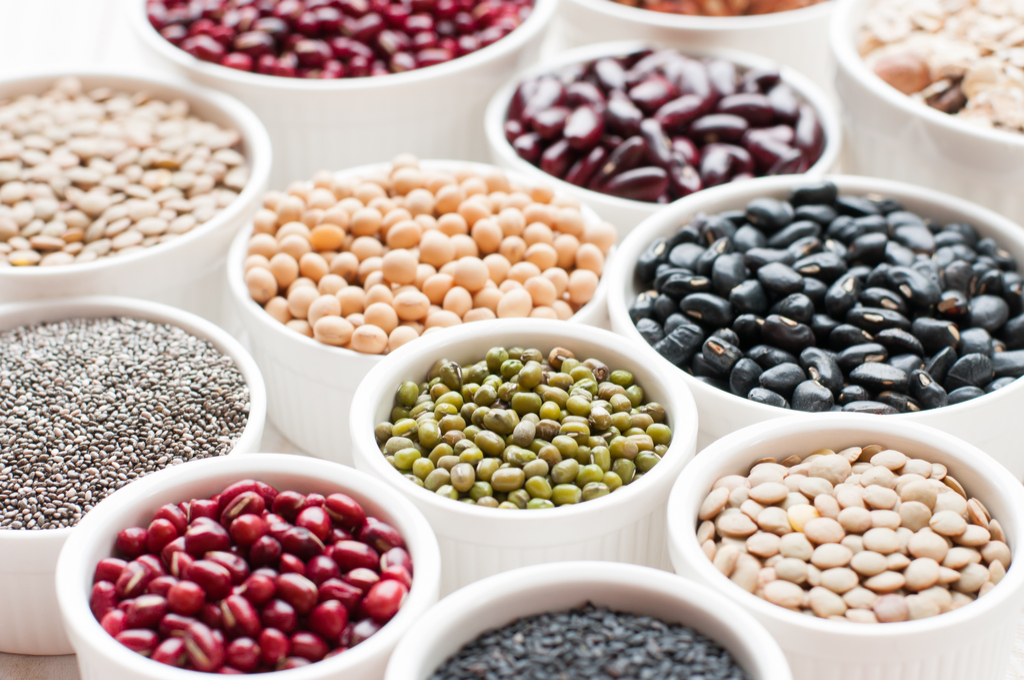
Beans and legumes are another important dietary addition if you’re hoping to preserve your cognitive health as you age. According to a 2023 study published in the European Journal of Clinical Nutrition, people without a history of stroke who consumed beans regularly were at significantly lower risk of developing disabling dementia, compared with those who did not.
Though all protein appears to have a generally protective effect on brain health, it matters where your protein comes from, suggests one Harvard study published in the American Journal of Clinical Nutrition. While the researchers noted an 11 percent reduced dementia risk for every five percent of calories that came from animal protein instead of carbohydrates, they found a 26 percent reduced dementia risk for every five percent of calories that came from plant protein instead of carbohydrates.
“Beans and legumes had the strongest protective association. Peas and lima beans in particular were associated with a 28 percent lower risk of cognitive decline for every additional three servings per week,” Tian-Shin Yeh, MD, PhD, the lead author and a postdoctoral research fellow at the Harvard T.H. Chan School of Public Health, told Harvard Health Publishing.
RELATED: Just 4 Minutes of Exercise Can Keep Your Brain Young, Science Says—Here’s How.
3
Walnuts
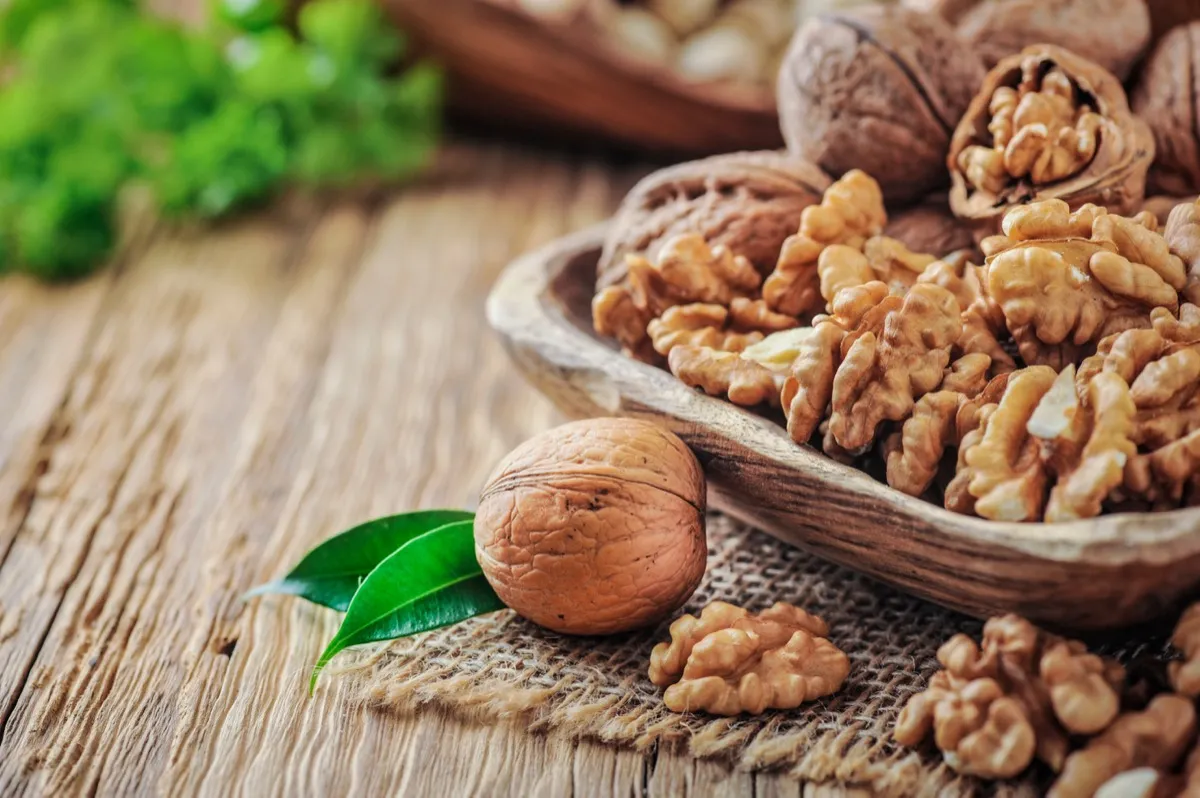
Research also shows that eating nuts can protect against dementia. In fact, a 2020 study published in the journal Nutrients says walnuts in particular may reduce risk factors for cognitive decline, such as oxidative stress and neuroinflammation.
“Walnuts contain several components that have antioxidant and anti-inflammatory effects,” the study explains. “Animal and human studies from our and other groups suggest that supplementation with walnuts in the diet may improve cognition and reduce the risk and/or progression of mild cognitive impairment (MCI) and Alzheimer’s disease (AD).”
4
Whole grains
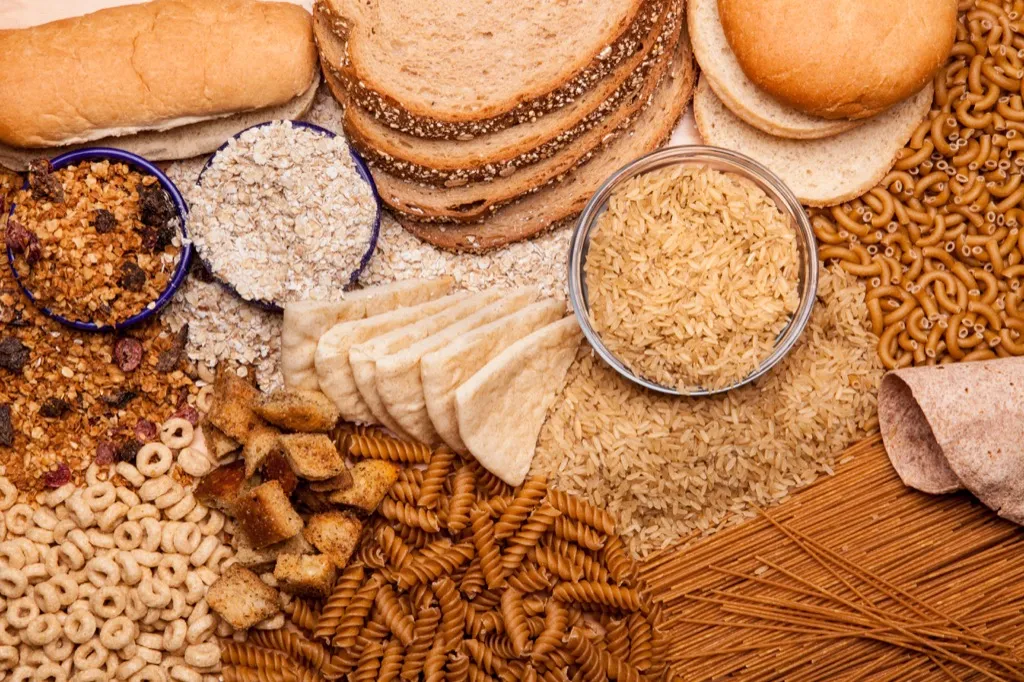
Eating fiber-rich whole grains can also protect against dementia, a 2023 study suggests. The study looked at data from 2,958 subjects from the Framingham Offspring Cohort and found that people who ate whole grains regularly were at a reduced risk of cognitive decline.
“After multivariate and dietary adjustments, individuals with the highest category for total whole grain (WG) food consumption had a lower risk of all-cause dementia and AD dementia than individuals with the lowest category,” the study authors wrote.
However, they note that the rate reduction in dementia cases “slightly plateaued at more than one and two servings per day, respectively.”
RELATED: The Perfect Time to Start Hormone Therapy to Slash Dementia Risk.
5
Fatty fish
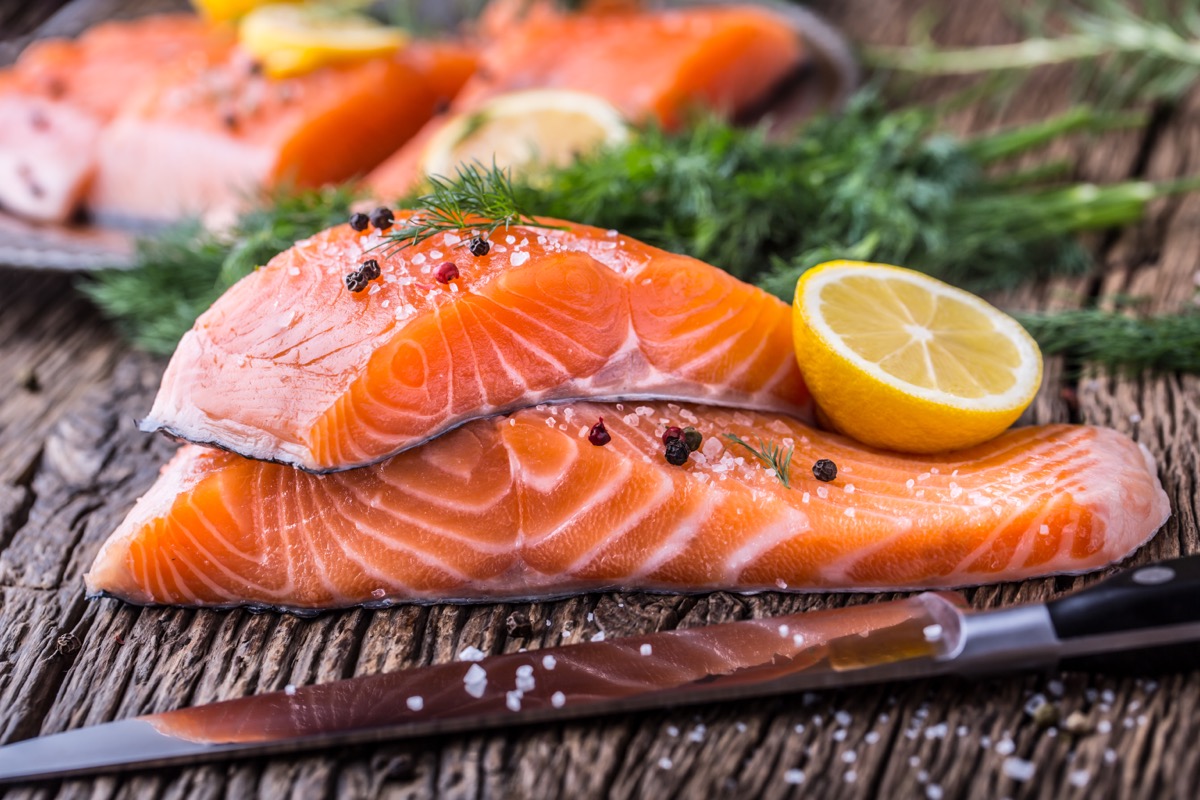
The MIND diet recommends limiting your intake of red meat and other animal products that are high in saturated fat, including cheese. Instead, it suggests eating fatty fish that are high in Omega-3s, including salmon, sardines, trout, tuna, or mackerel.
In fact, according to a 2022 study published in the Journal of Nutrition, Health, and Aging, it may not take long to start seeing some benefits. The study authors concluded that 12 weeks of fish intake in the context of a modified MIND diet “may improve the cognition of cognitively intact, resource-limited elderly people.”
6
Olive oil

For better brain health, the creators of the MIND diet suggest consuming no more than one tablespoon of butter or margarine per day. In its place, they recommend cooking with olive oil, which is much lower in saturated fat and higher in heart-healthy mono-unsaturated fats.
One recent study found that consuming just a spoonful of olive oil per day could reduce your risk of dying from dementia by 28 percent.
“Our study reinforces dietary guidelines recommending vegetable oils such as olive oil and suggests that these recommendations not only support heart health but potentially brain health, as well,” said Anne-Julie Tessier, a co-author of the research and postdoctoral fellow at the Harvard T.H. Chan School of Public Health, via news release. “Opting for olive oil, a natural product, instead of fats such as margarine and commercial mayonnaise is a safe choice and may reduce the risk of fatal dementia.”
For more health news sent directly to your inbox, sign up for our daily newsletter.
Best Life offers the most up-to-date information from top experts, new research, and health agencies, but our content is not meant to be a substitute for professional guidance. When it comes to the medication you’re taking or any other health questions you have, always consult your healthcare provider directly.
- Source: Harvard Health: Diet Review: MIND Diet
- Source: Mayo Clinic: DASH diet: Healthy eating to lower your blood pressure
- Source: Journal of the American Geriatrics Society: Neuroprotective diets are associated with better cognitive function
- Source: NeuroImage: Higher fresh fruit intake relates to larger grey matter volumes in areas involved in dementia and depression
- Source: European Journal of Clinical Nutrition: Dietary intake of beans and risk of disabling dementia
- Source: Protein intake associated with less cognitive decline
- Source: Nutrients: Beneficial Effects of Walnuts on Cognition and Brain Health
- Source: High consumption of whole grain foods decreases the risk of dementia and Alzheimer's disease
- Source: Opting for olive oil could boost brain health